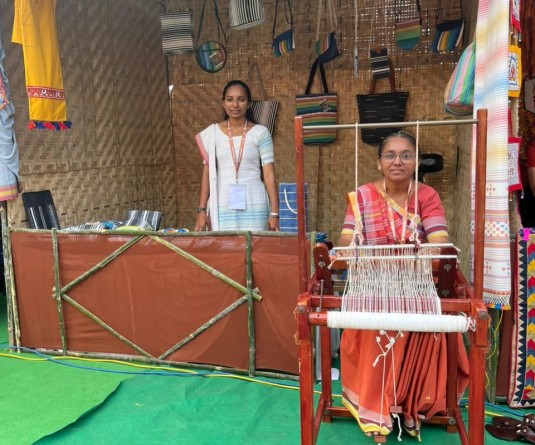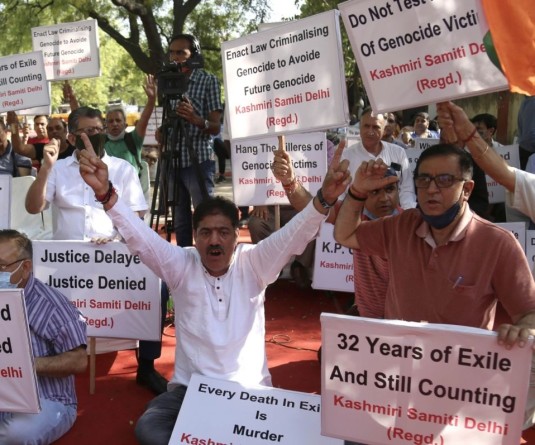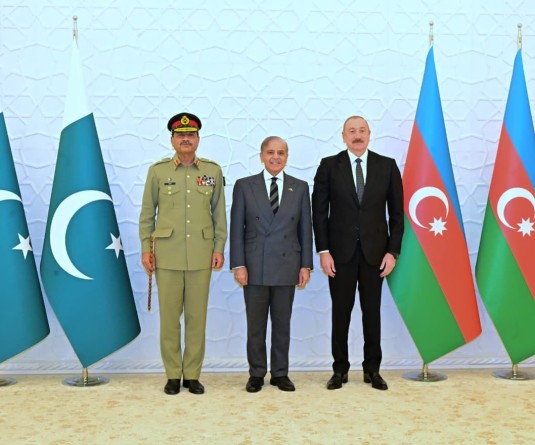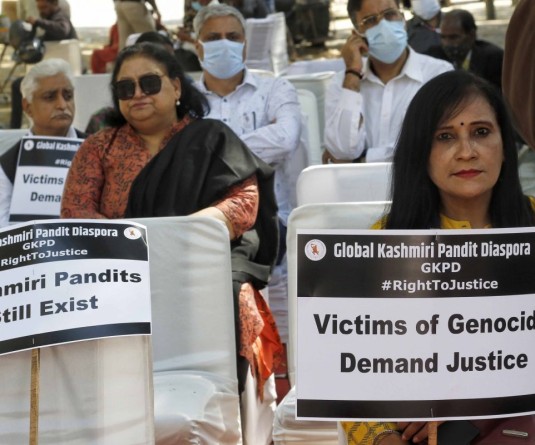(Photo: IANS)
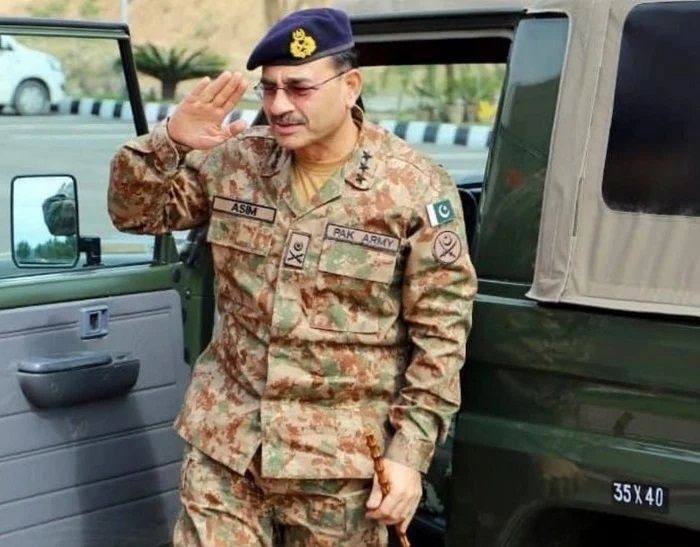
New Delhi, October 14 (IANS) Pakistan is a state which has become a harbinger of militancy and terror. It is a place where militants are not only born but systematically groomed, trained, and deployed according to the cynical calculations of its military establishment.
For decades, the Pakistan Army and its intelligence wing, the ISI, have turned jihadist groups into instruments of statecraft. Whenever the Army faces pressure, it simply redeploys these proxies to new battlegrounds, never dismantling them, always recycling them.
The latest example of this dangerous strategy is the relocation of Jaish-e-Muhammad (JeM) and Hizbul Mujahideen from Pakistan-occupied Jammu and Kashmir (POJK) to Khyber Pakhtunkhwa. This move was not voluntary on the part of these militant groups; it was orchestrated by the Pakistan Army itself.
Once again, the military has demonstrated its addiction to terrorism as a policy tool, shamelessly moving pawns around on a chessboard stained with the blood of innocents. Why were these groups moved? The reasons are as cynical as they are revealing. First, the Pakistan Army needs new eyes and ears to monitor the growing threat of the Tehrik-i-Taliban Pakistan (TTP), a militant faction that has become the country’s greatest internal security challenge.
Second, the Army wants these groups stationed near the Afghan border to act as auxiliary forces against cross-border infiltration and to keep an eye on Taliban movements. In both cases, instead of relying on professional intelligence or disciplined troops, the Army turns to its old militant allies.
Hizbul Mujahideen and Jaish-e-Muhammad — once unleashed against India — are now tasked with protecting Pakistan itself from the monster its military created.
Hizbul Mujahideen has a long history as the primary proxy of Pakistan in Kashmir. Since its founding in the late 1980s, it has operated as the largest Islamist militant organisation waging jihad against India in Jammu and Kashmir. Its commanders, safe in Pakistan, openly coordinated with the ISI while its foot soldiers carried out ambushes, assassinations, and propaganda campaigns across the Valley.
Jaish-e-Muhammad, meanwhile, is a notorious terror outfit founded by Masood Azhar, responsible for some of the bloodiest attacks in India, including the 2001 Parliament attack and the 2019 Pulwama suicide bombing. Both groups are officially designated as terrorist organisations by the international community.
Yet, inside Pakistan, they have enjoyed protection, funding, and freedom of movement — because they serve the Army’s interests. Now, instead of being deployed to wage war against India, these groups have been repositioned to fight Pakistan’s internal enemies. That shift speaks volumes about the Army’s desperation. The rise of the Afghan Taliban in 2021 was initially celebrated in Rawalpindi as a strategic victory.
For decades, Pakistan had nurtured the Taliban, providing safe havens and support. Their takeover of Kabul was expected to deliver Islamabad unprecedented leverage in Afghanistan. But the dream quickly turned sour. The Afghan Taliban refused to rein in the Pakistani Taliban (TTP), who were emboldened by their brothers’ victory.
Far from collapsing, the TTP grew stronger, escalating attacks on Pakistani soldiers, police, and civilians. In one of the greatest ironies of modern geopolitics, the Pakistan Army now finds itself under siege from the very forces of jihad it once championed.
This is where Jaish-e-Muhammad and Hizbul Mujahideen come into play. By relocating them to Khyber Pakhtunkhwa, the Army has effectively repurposed its foreign-facing proxies for domestic survival. These groups are now intelligence assets in tribal areas where the Army’s conventional surveillance networks are weak. They can infiltrate militant cells, provide advance warning, and act as informants on TTP movements.
At the same time, their operatives are deployed along the porous Durand Line to bolster Pakistan’s fragile border defences. In short, they are being used as mercenaries in the Army’s own homeland. But this redeployment also reveals the Army’s utter failure. A professional institution would strengthen its own intelligence apparatus, train its soldiers, and take direct responsibility for counterinsurgency.
The Pakistan Army, bloated by decades of unchecked budgets and political dominance, instead chooses the lazy, reckless path of outsourcing its wars to militants. It is a strategy of expediency, not foresight. The Army claims to be the guardian of the nation, yet it entrusts that guardianship to groups that are internationally branded as terrorists.
For the people of Khyber Pakhtunkhwa, this is nothing short of a nightmare. The region has already been brutalised by decades of conflict — first during the Afghan jihad against the Soviets, then under the TTP insurgency, then through devastating Pakistani military operations.
Now, the arrival of Hizbul Mujahideen and Jaish-e-Muhammad operatives only deepens the militarisation of everyday life. Some locals are coerced into accepting them as protectors against the TTP, but many rightly fear that their presence will prolong instability. These militants do not bring peace; they bring ideology, violence, and the shadow of endless conflict. The Afghan Taliban’s stance further exposes Pakistan’s hypocrisy.
For years, Islamabad justified its patronage of the Taliban as a necessary counterweight to Indian influence in Afghanistan. Now, when the Taliban refuse to clamp down on the TTP, Pakistan cries betrayal. But what else could it expect? Militant groups are loyal only to ideology, not to the generals of Rawalpindi. By once again relying on Hizbul Mujahideen and Jaish-e-Muhammad, the Army is repeating the same mistake that has haunted Pakistan for decades — using proxies to fight battles it cannot win itself.
The international community should view this with alarm. Pakistan’s redeployment of Hizbul Mujahideen and Jaish-e-Muhammad is not a sign of reform. There is no evidence that Islamabad is reining in terrorism. It is, instead, clear proof that militancy remains central to Pakistan’s security doctrine. These groups have not been dismantled; they have simply been moved from one front to another. Yesterday, they were weapons against India.
Today, they are shields against the TTP. Tomorrow, they could reemerge in Kashmir or Afghanistan again. The cycle never ends, because Pakistan has built a system where terrorism is not an aberration but a state policy. The Pakistan Army, meanwhile, emerges from this episode exposed and humiliated.
Despite consuming vast national resources, it now leans on terrorists to secure its borders and gather intelligence. An institution that portrays itself as the pride of the nation is, in reality, a parasite that survives by cultivating jihadists, manipulating them, and sacrificing its own citizens to sustain its power. Pakistan’s military is not a defender of the state; it is the architect of its misery.
For India, the relocation of these groups is yet another reminder that Pakistan has not abandoned its terrorist infrastructure. For the world, it is evidence that Pakistan’s claim of being a victim of terrorism is a convenient lie. Victims do not nurture terrorist groups for decades. Victims do not redeploy banned outfits to fight domestic battles. Victims do not play double games with militants and then expect sympathy when the blowback arrives. Pakistan is not a victim; it is the perpetrator-in-chief of terrorism in South Asia.
The relocation of Jaish-e-Muhammad and Hizbul Mujahideen from POJK to Khyber Pakhtunkhwa is more than just a tactical move. It is a symbol of Pakistan’s continuing addiction to jihadist proxies.
It proves that the Army has learned nothing from history — not from the blowback of the Afghan jihad, not from the chaos of the TTP insurgency, not from the international isolation it suffers.
By clinging to terrorism as a tool of policy, Pakistan condemns itself to perpetual instability, economic ruin, and moral bankruptcy. Pakistan may believe it is playing a clever game, shifting militants like chess pieces to counter immediate threats. But in reality, it is playing Russian roulette with its own future.
Every redeployment, every alliance with terrorists, pulls the trigger again. And as history shows, it is only a matter of time before the weapon fires back.
Until Pakistan dismantles the very machinery of jihad it has built, it will remain what it has long been: not a victim of terror, but the world’s foremost factory of terrorism, a state where the Army grooms militants to fight its wars and sacrifices its own people in the name of strategic depth.


